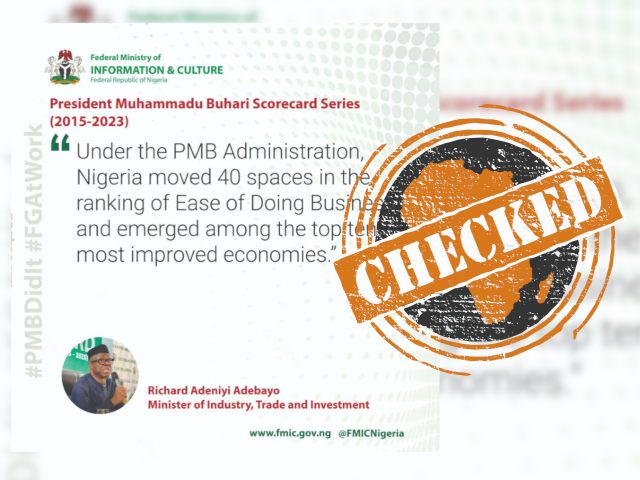IN SHORT: Days before the Nigerian election, news of a raid on a prominent presidential candidate’s home by the financial crimes commission, seizing a large amount of new naira notes, should be ignored.
A message circulating on social media in Nigeria claims that the Economic and Financial Crimes Commission (EFCC) raided the home of the presidential candidate of the ruling All Progressives Congress and found N400 million cash.
The message went viral on Facebook just a week before Nigeria’s presidential election, scheduled for 25 February 2023.
The message reads: “Breaking News: President Buhari ordered EFCC to raid Tinubu's house, and 400 billion of the new money was recovered from his underground house. Investigations are still going on as to which bank manager made such money accessible to him, Tinubu holding 400 billion alone is likely holding the entire money printed for the whole Nigeria.”
This Facebook post has been shared over 4,100 times.
Other examples of the claim on Facebook can be found here, here, here, here, and here.
Nigeria has faced a weeks-long currency crisis after the country’s central bank redesigned the N1,000, N500 and N200 banknotes.
The Central Bank of Nigeria (CBN) released the redesigned notes into circulation in December 2022, and shifted the deadline for returning old notes to banks to 10 February 2023.
The CBN and president Muhammadu Buhari have insisted the old notes have ceased to be legal tender. This is despite an order by the country’s supreme court demanding a stay of action pending a suit filed by some state governments against the CBN and the federal government.
This has led to a crisis, including violent protests. Nigerians who still have the old notes are finding it difficult to spend them while the new notes are hard to find, even at banks and automated teller machines.
CBN governor Godwin Emefiele has accused politicians of hoarding the new banknotes ahead of the election.
In January, Tinubu said the naira redesign and fuel scarcity in the country were meant to stop him from becoming president. Some claim that this is a sign of conflict within the ruling party and between Tinubu and Buhari.
But did the financial crimes commission find N400 billion new notes in Tinubu’s house?

Financial crimes commission debunks claims
All versions of the claim on Facebook gave no further detail about the supposed raid of Tinubu’s home.
Some included links to click through for more details, but they led to an unrelated article on a poorly designed website. This is typically a sign that a post is clickbait and the claim was fabricated.
Considering that Tinubu is a well-known politician and is running for president of Nigeria, the EFCC raiding his home would make news headlines. But it didn’t. This is another indication that the story is not true.
The EFCC has also officially debunked the claim. In a statement released by EFCC head of media and publicity Wilson Uwujaren, on its Facebook page and Twitter timeline, the commission referred to the claim as “fake news”.
“The Commission wishes to state that no such operation was carried out by the EFCC. The public is enjoined to disregard the report as fake news,” the statement read, in part.
Republish our content for free
For publishers: what to do if your post is rated false
A fact-checker has rated your Facebook or Instagram post as “false”, “altered”, “partly false” or “missing context”. This could have serious consequences. What do you do?
Click on our guide for the steps you should follow.
Publishers guideAfrica Check teams up with Facebook
Africa Check is a partner in Meta's third-party fact-checking programme to help stop the spread of false information on social media.
The content we rate as “false” will be downgraded on Facebook and Instagram. This means fewer people will see it.
You can also help identify false information on Facebook. This guide explains how.



Add new comment